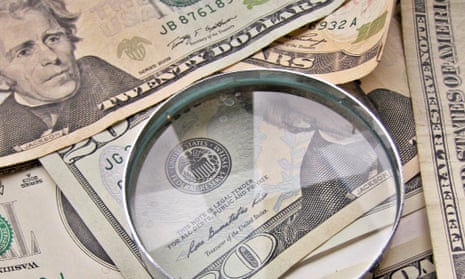Feminists have taken a lot away from men over the years, from their exclusive access to property ownership and the right to vote, to their ability to beat and sexually assault their spouses with impunity and prevent women from accessing higher education or the job market. But watch out, boys! Now we’re coming for your money.
What started as an online grassroots campaign to replace Andrew Jackson on the $20 bill with a woman is now in front of Congress: on 15 April, Senator Jeanne Shaheen of New Hampshire introduced the Women on the Twenty Act, which would create a panel of citizens to choose a woman to grace the front of a new-and-improved bill. (And, yes, it’s a much bigger deal than the Susan B Anthony or Sacagawea dollar coins: everybody uses twenties, and no one wants to carry around more change.)
Senator Shaheen told Lawrence O’Donnell that night, “we need to recognize the contributions of some of the women in American history”, and, in a statement, she said, “Our paper currency is an important part of our everyday lives and reflects our values, traditions and history as Americans”.
It’s such a lovely, simple idea – but because it involves touting women’s accomplishments I’m quite sure it will be painted as some sort of feminazi Treasury takeover. We’ve seen it happen before.
When UK activist Caroline Criado-Perez successfully campaigned to get Jane Austen on the £10 note in 2013, she was met with rape and death threats. (Thankfully, a few of her abusers had their day in court.) Any time something like this happens – rank misogyny in the face of a completely reasonable idea – I try to make sense of it. But the only thing I come away with is something my four-year old daughter said to me a few days ago: “Some people don’t like girls.”
And because some people don’t like girls, I predict this move in the US will provoke a similar outcry. But, like the campaign in the UK, I also believe that the US campaign will ultimately be successful. It’s high time we honored women’s accomplishments on currency and there are plenty of women to choose from.
Women on 20s, the campaign that started it all, began with 15 candidates and then asked people to vote for their favorite ones until only the top four remained: Eleanor Roosevelt, Harriet Tubman, Rosa Parks, and Wilma Mankiller. All worthy women – though I imagine that, if Senator Shaheen’s bill is successful, we’ll start this selection process all over again.
Naturally, I have my own suggestion for what woman should be on the $20 bill. It’s true that our currency honors those who have contributed to American history, but this is also an opportunity to remind Americans about our future - not just what kind of country we were, but what kind of country we’d like to be. That’s why my vote would go to Ida B Wells (who also made the list of 9 year-old Sofia, the girl who wrote to President Obama asking why there were no women on American currency.)
Wells wasn’t just an African-American civil rights leader, member of the women’s suffrage movement and newspaper editor. She also shone a light on the horror of lynching, documenting the crimes carefully and contextualizing the way they were used as a means of both social and economic control over the black community. Putting Wells on the $20 bill would not only mean one less man in my wallet; it would also mean confronting, every time we pay or receive payment, the face of a woman who first explained to America how we use violence as a means of economic control of people of color.
And that, as the men sometimes say, is “so money”.

